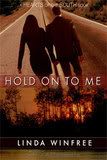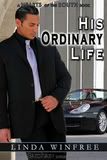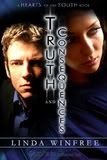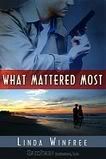Instinct
I believe very strongly in instinct. Internally, I think we all have little triggers that tell us when to do something and when to not do something. When we're doing something right and when we're doing something wrong. Whether it's something as simple as not wanting my kids to go somewhere because I have a bad feeling, or feeling like I need to be somewhere at some point for an unknown reason. Trusting my instincts has always worked to my advantage. When I don't, that's usually when I get in trouble.
Most of us who are writers have those same gut instincts when it comes to our work. The more I learn about craft and this business though, the more I realize I'm questioning those instincts that have never (really) failed me. As I sit here working through the first few chapters of my new WIP, I find I'm questioning everything - plot, characterization, turning points, what the hell is going to happen next.
Why?
I'm not sure. I think deep down it's fear. Fear that I don't know half as much as I should. Fear that someone else knows more. Fear that I'm kidding myself and I'm doing everything wrong.
Allison Brennan blogged about midpoints a couple weeks ago. The idea was basically that in a three-act structure, with the second act being your longest act, there's a natural midpoint that falls (generally) close to the halfway point of your book. That this midpoint is a natural shift in the story - where, from that point on, you can see the book building toward that ultimate climax. Did I know about this midpoint idea before I'd written five books? Nope. Didn't have a clue. But I immediately went back and looked at my most recent manuscript, and bam, there it was. There's a clear midpoint right smack dab in the middle of the second act, and surprisingly, it falls almost exactly at the halfway point of my book. I wouldn't call it a major turning point, but it's a point where the heroine decides instead of working against the hero, she has to resign herself to working with him to accomplish their goal. It's more of an internal shift from not trusting him, to trusting him, but from that point on, you can see where the climax and black moment are going to come crashing down on her. When I started that manuscript, instinctively I was building toward that midpoint, although I didn't realize it. Then when it happened, everything shifted toward the climax.
But what if I'd known about midpoints before writing that book? Would it have affected what I was writing and how? I'm not sure. But I do know now as I look at this new manuscript, I'm constantly asking myself, what's the midpoint? How are you going to build toward it? And how is it going to change everything?
Luckily, I have an answer, but it's taken me a while to work it out, whereas before I would have simply started writing and let my natural instincts guide me along. I feel like I've lost a good month stressing about midpoints and turning points and 3 (or 4) act structures. My early manuscripts were pure crap, but even when I look at what I wrote back then - bad as they were - there were some things I was instinctively doing right even before I knew about all this other stuff. I just wrote. And I didn't worry about all that craft knowledge that's thrown at us right and left. Don't get me wrong, I'm not saying studying your craft is a bad thing, I'm just saying sometimes - for me - knowing too much tends to bog me down and hinder my forward progress rather than help it.
Joan is a huge proponent of taking classes, learning her craft. She knows a lot, and she passes a lot of that on to the rest of us here at RWKF. And to be honest, a lot of my craft lessons come from her when she shares them with me. She's a wealth of really good information, and I always read her Wednesday craft posts with bated breath. And they always, always, always make me think, hmm, am I doing that? Or, I wonder if I could do that better? But we're all wired differently, and what works great for her, tends to simply overwhelm me. If I took as many classes as Joan my eyes would cross and I'd be asking so many questions, second-guessing my instincts, I'd never write a single word. But I am glad I have her around to remind me of things now and then.
Where do you fall in this continuum? Are you the kind of person who's constantly taking classes, learning as much as you can, or are you more like me, where too much knowledge tends to slow you down?
Most of us who are writers have those same gut instincts when it comes to our work. The more I learn about craft and this business though, the more I realize I'm questioning those instincts that have never (really) failed me. As I sit here working through the first few chapters of my new WIP, I find I'm questioning everything - plot, characterization, turning points, what the hell is going to happen next.
Why?
I'm not sure. I think deep down it's fear. Fear that I don't know half as much as I should. Fear that someone else knows more. Fear that I'm kidding myself and I'm doing everything wrong.
Allison Brennan blogged about midpoints a couple weeks ago. The idea was basically that in a three-act structure, with the second act being your longest act, there's a natural midpoint that falls (generally) close to the halfway point of your book. That this midpoint is a natural shift in the story - where, from that point on, you can see the book building toward that ultimate climax. Did I know about this midpoint idea before I'd written five books? Nope. Didn't have a clue. But I immediately went back and looked at my most recent manuscript, and bam, there it was. There's a clear midpoint right smack dab in the middle of the second act, and surprisingly, it falls almost exactly at the halfway point of my book. I wouldn't call it a major turning point, but it's a point where the heroine decides instead of working against the hero, she has to resign herself to working with him to accomplish their goal. It's more of an internal shift from not trusting him, to trusting him, but from that point on, you can see where the climax and black moment are going to come crashing down on her. When I started that manuscript, instinctively I was building toward that midpoint, although I didn't realize it. Then when it happened, everything shifted toward the climax.
But what if I'd known about midpoints before writing that book? Would it have affected what I was writing and how? I'm not sure. But I do know now as I look at this new manuscript, I'm constantly asking myself, what's the midpoint? How are you going to build toward it? And how is it going to change everything?
Luckily, I have an answer, but it's taken me a while to work it out, whereas before I would have simply started writing and let my natural instincts guide me along. I feel like I've lost a good month stressing about midpoints and turning points and 3 (or 4) act structures. My early manuscripts were pure crap, but even when I look at what I wrote back then - bad as they were - there were some things I was instinctively doing right even before I knew about all this other stuff. I just wrote. And I didn't worry about all that craft knowledge that's thrown at us right and left. Don't get me wrong, I'm not saying studying your craft is a bad thing, I'm just saying sometimes - for me - knowing too much tends to bog me down and hinder my forward progress rather than help it.
Joan is a huge proponent of taking classes, learning her craft. She knows a lot, and she passes a lot of that on to the rest of us here at RWKF. And to be honest, a lot of my craft lessons come from her when she shares them with me. She's a wealth of really good information, and I always read her Wednesday craft posts with bated breath. And they always, always, always make me think, hmm, am I doing that? Or, I wonder if I could do that better? But we're all wired differently, and what works great for her, tends to simply overwhelm me. If I took as many classes as Joan my eyes would cross and I'd be asking so many questions, second-guessing my instincts, I'd never write a single word. But I am glad I have her around to remind me of things now and then.
Where do you fall in this continuum? Are you the kind of person who's constantly taking classes, learning as much as you can, or are you more like me, where too much knowledge tends to slow you down?







4Comments:
Thanks, E. :-)
The learning is a compulsive thing for me. I heard once that if you choose a subject and spend an hour a night reading on that subject, you would be an expert in that area after a year.
Hmmmm...well, that may not pertain to writing. :-)
I think I do all I do out of the same fear you spoke of in your post. Am I as good as I could be? Am I better than the competition? What could I do to be different (in a better way?)
The answers that always come back to me is know more, practice more, focus. Learn.
There was a point early on during which I felt overwhelmed. OMG, so much to know--I'll never get it all. But after several months of reading and classes and writing, writing, writing and critting, critting, critting, everything I'd been working toward gelled.
That said, I still feel like I know a fraction of what I have to learn...like 1%.
But I do have to say all the learning I've done as done 2 things I'm very pleased with: 1) It has propelled me along the writing path (of course there's luck involved there, too), and 2) it helps me improve every time I write.
I firmly believe that if all you do is write, write, write, you could very well be making the same mistakes again and again. When you learn, you bring something new into your work, which has the potential to act like a domino effect and improve (or show you where you need to improve) the other components of your work.
Instinct is something I think I have a lot of...something I think I had from the beginning. And I'm sure it came from reading. Read enough romantic suspense and you know how things should weave together, get a feeling for how plots should evolve.
I think learning both deepens and validates that instinct...and in some instances, corrects it. My instincts have been known to be crap ... but that's all in the past. (HA!)
JMHO of course. :-)
Elisabeth,
What a great, thought provoking post. I think everyone goes through bouts of self-doubt like this. It goes hand in hand with the business. Writing and reading is such a subjective subject. And we're bombarded at every turn by other writer's opinions and other writers processes, not to mention other writers' do's or don'ts.
My crit partner can't read writing articles, or take lessons, or even read authors posts about their writing processes because she starts to doubt herself so badly she freezes and it can take her forever to start writing again.
The only thing I've found to be consistant for myself, is that what works brilliant for a friend will work miserably for myself.
Like you, I think good instincts are essential. And trusting those instincts are even more essential.
when it comes to classes and articles and such, I think I sit somewhere between you and Joan. When I first started writing, I read just about every book there was on writing, I've taken class after class. But I've actually learned the most by analysing why I loved my favorite authors. And what it was I didn't like about the authors I don't care for.
I'd tear the books apart and figure how/why they worked--or didn't work for me.
I think the most important thing to keep in mind though-- is to write for yourself. For your own likes and dislikes. The minute self-doubt creeps in ask yourself if you like what your doing, or is there something about it that bothers you. If you like it, then stick with it. If you don't then think about changing it. But if you write for yourself first, self-doubt is much less likely to take hold.
At this point, I have no idea where I fall. A year ago when I started writing in this genre, I just wrote. But I knew it wasn't working, it was slow paced, not enough action, etc. Since then I've been taking classes, reading how-to books and such. I know a lot more, but I still haven't completed a solid MS. So I don't know how I feel yet. I know that as I write I don't edit and I'm scared as hell to do revisions and layer in all the stuff I've learned about.
I'm taking three classes next month so we'll see how it goes :-) I have a feeling I'll want to go back and fix everything I've already written with my newfound knowledge.
Great thoughts, everyone. :)
For every writing style, there's a new and equally entertaining way to learn. We all do what works best for us. I've learned a lot online, and while I don't spend hours reading craft books, Maass's "Writing the Breakout Novel" put things I knew instinctively into clear, precise words. It also reaffirmed that my instincts were right and I was doing a few things the "right" way (if there is one).
J, I think you're right. If all you do is write, you're bound to make the same errors over and over. Critting - for me - has really helped me develop my writing and take it to the next level.
Theresa - I think analyzing your favorite authors is a great strategy. Although many of them can get away with things newbies can't, so it's kind of a catch-22. ;) I do believe you should write what you love, trust your gut, and reevaluate when you "feel" like something isn't working.
Lisa - You'll get there. :) Trust your instincts. Write, write, write (and crit and don't stop learning). But mostly, just get the words on paper. You can go back and tweak and edit whenever you want. But you can't even start those revisions until you've got that first draft. (And don't worry. I'll get my whip out if needed.)
Post a Comment
<< Home